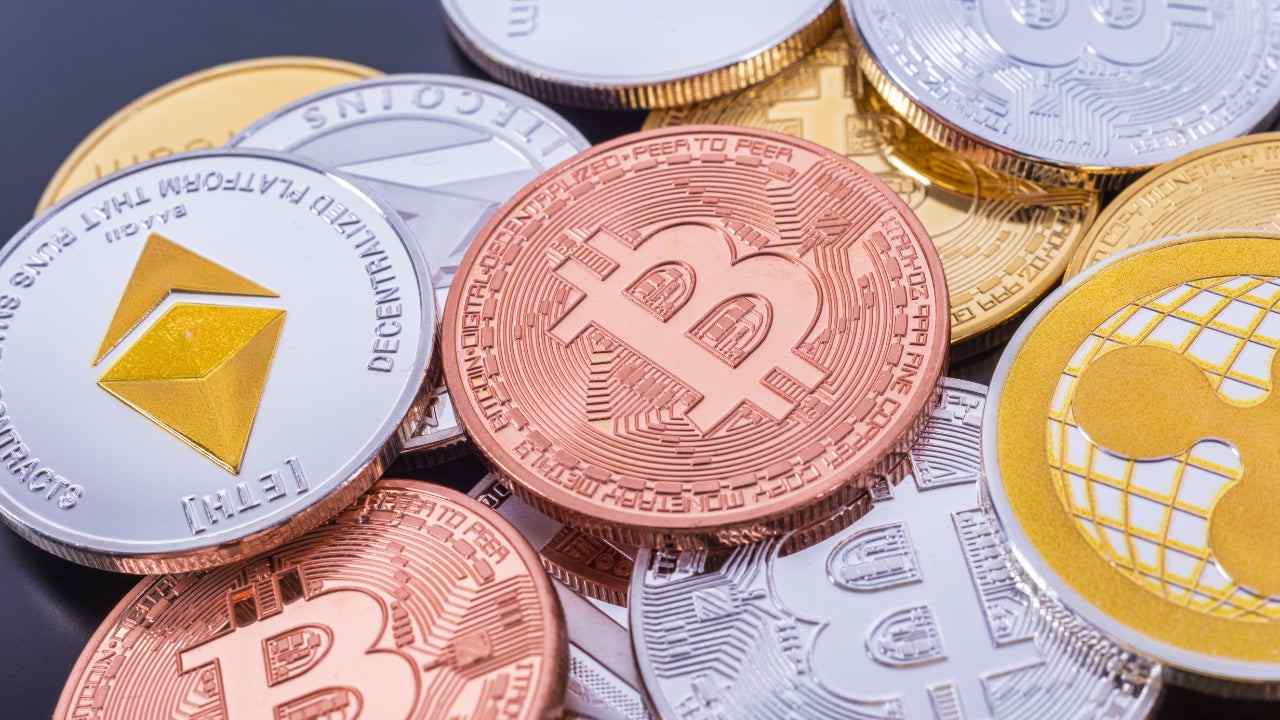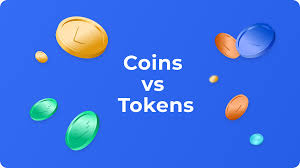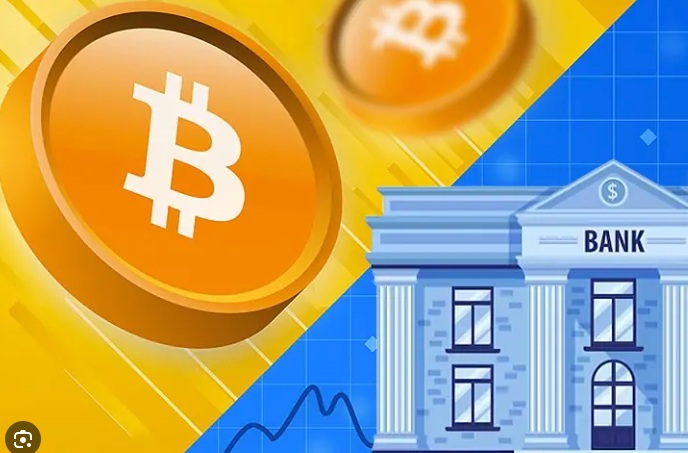
The cryptocurrency market is more than just Bitcoin and Ethereum. Thousands of digital assets, known as cryptocurrency tokens, play a crucial role in the blockchain ecosystem. But within this category, there’s another important distinction—tokens. Many new investors ask, what are cryptocurrency tokens, and more specifically, what is a crypto token, and what is the difference between a token and a coin?
This guide will break down the differences between coins and tokens, explain their use cases, and help you understand the role of cryptocurrency tokens in the crypto space. Whether you’re new to crypto or looking to refine your knowledge, this article will give you a solid foundation.
What Are Cryptocurrency Tokens? The Basics of Crypto Tokens and Coins

Defining Cryptocurrency Tokens
Cryptocurrency tokens, or simply crypto tokens, are digital assets created and managed on existing blockchain networks. Unlike native cryptocurrencies such as Bitcoin or Ethereum, tokens rely on smart contract functionality and can serve various purposes, from governance and utility to stablecoins and security assets.
Cryptocurrency tokens can be divided into two main groups:
- Coins: Digital currencies with their own independent blockchain, like Ethereum (ETH), Solana (SOL), or Cardano (ADA).
- Tokens: Digital assets that operate on an existing blockchain, like Uniswap (UNI), Chainlink (LINK), or USDT (Tether).
So, what is a crypto token exactly? Unlike native coins, tokens don’t have their own blockchain and rely on existing networks such as Ethereum or Binance Smart Chain. Tokens serve various functions, from governance to utility and payments within decentralized applications (dApps).
Now that we’ve established the difference, let’s dive deeper into what is the difference between a token and a coin.
What Is the Difference Between a Token and a Coin?

Coins – Native to Their Own Blockchain
A coin operates on its own independent blockchain. For example:
- Bitcoin (BTC) runs on the Bitcoin blockchain.
- Ethereum (ETH) runs on the Ethereum blockchain.
- Solana (SOL) runs on the Solana blockchain.
Coins are primarily used as a medium of exchange, similar to traditional currencies. They can also be used to pay network transaction fees, power smart contracts, or secure blockchain networks through staking.
Tokens – Built on Existing Blockchains
A token, on the other hand, does not have its own blockchain. Instead, it is created on an existing network, most commonly Ethereum. Examples include:
- USDT (Tether) – A stablecoin issued on Ethereum and other blockchains.
- UNI (Uniswap) – A governance token for the Uniswap decentralized exchange.
- MATIC (Polygon) – A token used for scaling Ethereum transactions.
Tokens serve specific purposes within their respective ecosystems, such as governance, staking, or providing access to decentralized applications.
So, while all tokens are cryptocurrency tokens, not all cryptocurrency tokens are coins. This distinction is crucial when researching what are cryptocurrency tokens and their use cases.
What Are Cryptocurrency Tokens and How Do They Fit into the Market?

Cryptocurrency tokens, whether they are coins or tokens, play an essential role in expanding the crypto market beyond Bitcoin. Here’s why they matter:
Smart Contract Capabilities
Many cryptocurrency tokens, especially Ethereum-based tokens, enable smart contracts. These self-executing agreements allow decentralized applications (dApps) to operate without intermediaries.
DeFi and Financial Innovation
Tokens fuel the decentralized finance (DeFi) revolution. Platforms like Aave, Compound, and Uniswap rely on cryptocurrency tokens for governance, rewards, and lending/borrowing mechanisms.
Gaming and NFTs
Many blockchain games use cryptocurrency tokens for in-game transactions, such as Axie Infinity’s (AXS) token. Non-Fungible Tokens (NFTs) also exist on blockchains as unique digital assets.
Stablecoins and Payments
Stablecoins like USDT and USDC act as digital equivalents of fiat money, providing stability in the volatile crypto market.
By understanding what is a crypto token and how tokens function within the broader category of cryptocurrency tokens, investors can better navigate the market.
What Are Cryptocurrency Tokens and How to Invest in Them?
If you’re wondering which cryptocurrency tokens to buy, it’s essential to consider their purpose and potential. Here’s a step-by-step approach:
Identify the Use Case
- Utility Tokens: Used within platforms for services (e.g., BNB for Binance transactions).
- Governance Tokens: Allow holders to vote on project decisions (e.g., UNI for Uniswap).
- Security Tokens: Represent assets like stocks on the blockchain.
- Stablecoins: Pegged to real-world currencies to reduce volatility (e.g., USDT, DAI).
Analyze the Blockchain
- Ethereum-based tokens (ERC-20) tend to have strong developer support.
- Binance Smart Chain tokens (BEP-20) offer lower fees and fast transactions.
Research Tokenomics
- Supply and Demand: Does the token have a capped supply (like Bitcoin) or an inflationary model?
- Circulating Supply: Check how much of the total supply is in circulation.
Monitor Market Trends
Understanding when cryptocurrency token bull markets happen can help in timing investments. Historically, token rallies follow Bitcoin’s price movements and occur when investors shift focus to smaller-cap tokens.
Risks of Investing in Cryptocurrency Tokens

While cryptocurrency tokens present exciting opportunities, they also come with risks:
High Volatility
Tokens are more volatile than Bitcoin and Ethereum, with prices fluctuating wildly.
Security Risks
Smart contract vulnerabilities can lead to hacks, as seen in DeFi exploits.
Regulatory Uncertainty
Many governments are still defining how to regulate cryptocurrency tokens, leading to potential legal risks.
Project Viability
Not all tokens survive. Many projects fail due to poor development, lack of adoption, or market crashes.
Conduct thorough research before investing in any cryptocurrency token.
Future of Cryptocurrency Tokens: Will They Replace Traditional Finance?

As blockchain technology continues to evolve, tokens are playing a growing role in financial markets. Some trends to watch include:
Mainstream Adoption
Major financial institutions are exploring tokenized assets and central bank digital currencies (CBDCs).
Growth of DeFi and Web3
Decentralized finance (DeFi) and the Web3 movement are making tokens more useful beyond speculation.
Regulatory Developments
Clearer regulations could bring legitimacy and mass adoption for cryptocurrency tokens.
Cryptocurrency tokens will continue to shape the future of finance. Knowing what are cryptocurrency tokens today will help you stay ahead of the curve.
Conclusion
What Are Cryptocurrency Tokens and Should You Invest?By now, you should have a strong understanding of what are cryptocurrency tokens, what is a crypto token, and what is the difference between a token and a coin.
Cryptocurrency tokens, whether utility, governance, or security tokens, serve essential roles in the crypto ecosystem. They enable smart contracts, fuel decentralized applications, and provide alternative investment opportunities. However, they also come with risks that require careful research and strategy.
As the crypto space evolves, understanding what cryptocurrency tokens are will be crucial for anyone looking to navigate this ever-growing industry. Keep learning, stay informed, and make smarter investment decisions in the world of crypto.























